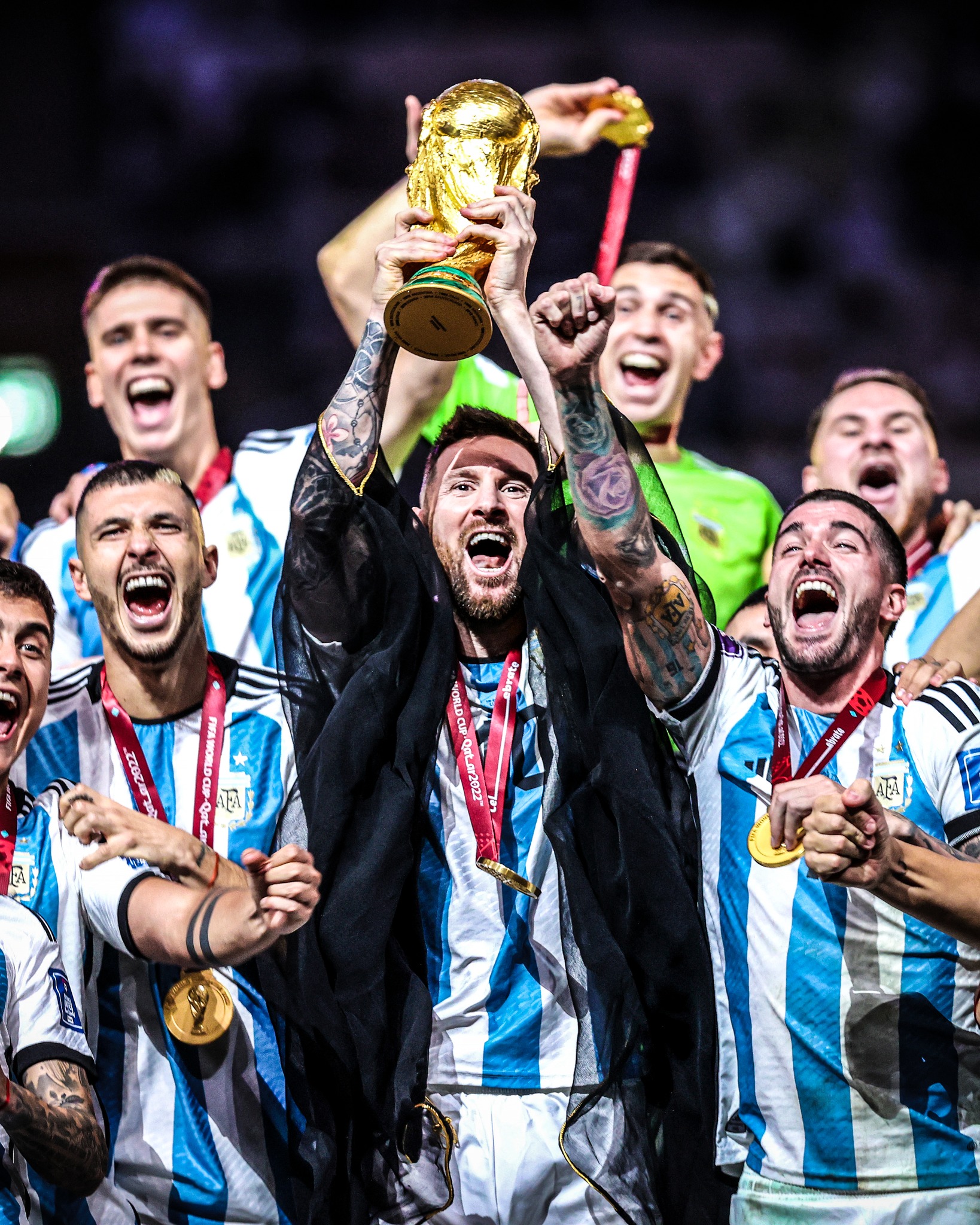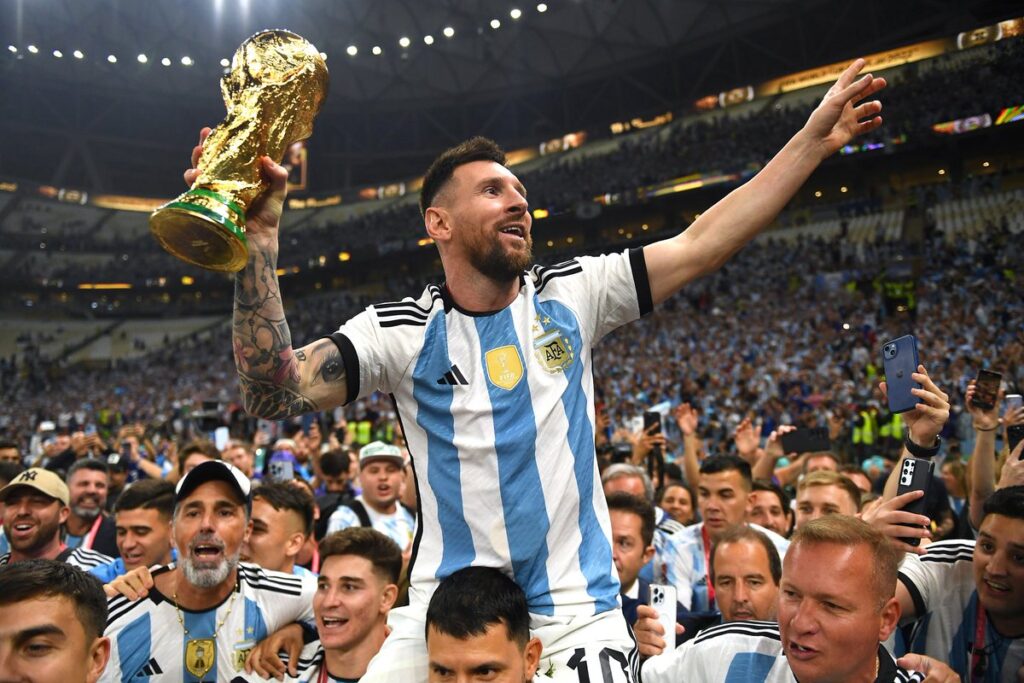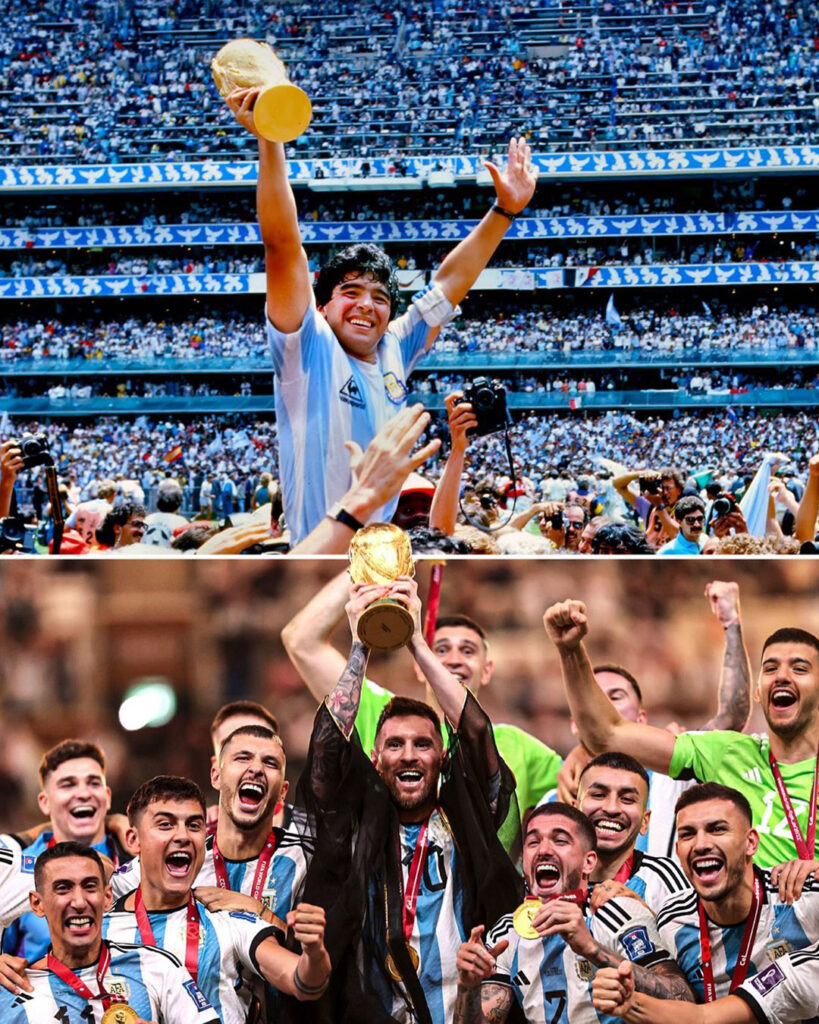
World Cup 2022 – Argentina beat France in the final
The wait is finally over, for Messi’s fans and football fans around the world, as the Argentina’s skipper got what he deserved after heartbroken defeat of 2014.
World Cup 2022 – Argentina beat France in the final – Lionel Messi and Kylian Mbappe gave a breathtaking race in a classic World Cup final with extra-time and penalty shoot-out involved to decide the winners.
Key moments
- Lionel Messi and Angel Di Maria struck for Argentina in first half
- Kylian Mbappe netted twice in 97 seconds to draw France level
- Messi and Mbappe traded extra-time goals before Argentina won the shootout

World Cup 2022 – Argentina beat France in the final – Highlights
Messi and Kylian Mbappe lived up to their heavyweight billing, the Argentina genius must have felt he won it three times.
The PSG man opened the scoring and looked destined for a straightforward triumph until France recovered from 2-0 down to send the game to extra-time.

Messi broke the deadlock when Angel Di Maria made Ousmane Dembele pushed him in the box and led to a penalty. La Albiceleste’s skipper rolled his penalty right and Hugo Lloris dived in the opposite direction.
And when France were hurried out of possession high, they were made to pay.
Julian Alvarez eventually released Alexis Mac Allister, who guided a perfect ball along the floor to the back post, where Di Maria arrived to defeat Lloris with a controlled strike.
Surprisingly, Didier Deschamps withdrew Dembele and Olivier Giroud in favour of Randal Kolo Muani and Marcus Thuram on 41 minutes.
As the tactics worked, France did cause problems on Argentina’s defense, but it took Les Bleus up to the 80th minute to score, and they did it twice thanks to Kylian Mbappe’s brilliance.

Kolo Muani dashed behind the Argentina backline, initiating panic in Nicolas Otamendi, who illegally impeded the attacker’s progress in the area. Martinez leapt the right way but couldn’t keep out Mbappe’s crunching strike in the 80th minute.
Only a minute later, the French star scored with a demi-volley to put the game back alive for France, Messi was partly in charged when he lost the ball to Coman at midfield.
Argentina regained their composure in time for the extra half hour. Dayot Upamecano bravely blocked a strike from Lautaro Martinez, who was narrowly wide with another effort.
It needed Lloris’s outstanding reflexes to repel Martinez early in the second half of extra-time. But there was no denying Messi on the follow up, not even Upamecano desperately trying to clear from the line.
Still, France refused to yield. Montiel used an arm to block an Mbappe effort and the nerveless 23-year-old sent his penalty unerringly into the left corner.
Chances did come close for both at the very end. Martinez did exceptionally well to save one-on-one from Kolo Muani, then an unmarked Lautaro Martinez headed wide from in front of goal.
Penalty shoot-out

The South Americans similarly had advantages wrested away in this astonishing final.
Emiliano Martinez, who superbly denied Kolo Muani a winner at the end of extra-time saved Kingsley Coman’s shoot before the pressure caused Touchameni missed his wide.
Meanwhile, Argentina was perfect in the run, with Messi, Paulo Dybala, Leandro Paredes and Montiel, the advantage obtained by Martinez was crucial.

Key stats
- Lionel Messi played his 27th World Cup match to move one clear of Lothar Matthaus and claim the appearance record outright
- Messi’s strike from the penalty spot was Argentina’s 150th goal in World Cup matches. They are the third nation to reach that milestone after Brazil (237) and Germany (232).
- Argentina scored the first goal in all seven of their matches at Qatar 2022.
- Messi is the first player to score in the group stage, Round of 16, quarter-finals, semi-finals and final in a single World Cup
- Mbappe is the fifth and youngest player to score in two World Cup finals after Vava (1958, 1962), Pele (1958, 1970), Paul Breitner (1974, 1982) and Zinedine Zidane (1998, 2006)
- Mbappe is only the second man to score a World Cup final hat-trick after Geoff Hurst in 1966



